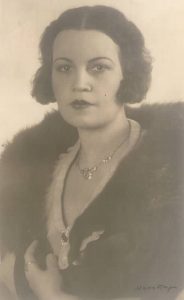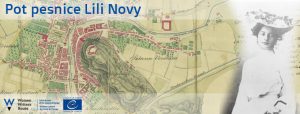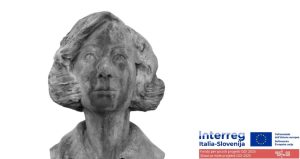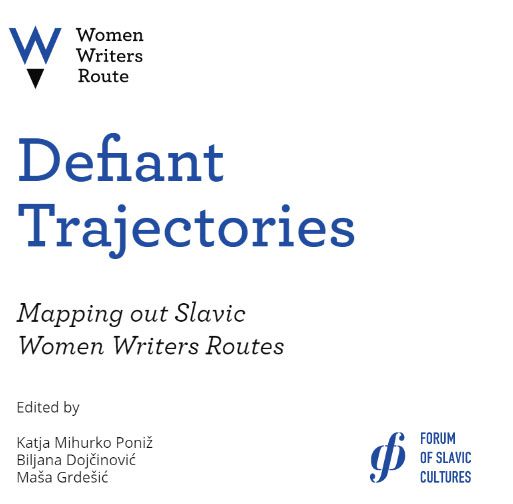Elisaveta Bagryana (Bulgarian: Елисавета Багряна) (16 April, 1893 – 23 March, 1991), born Elisaveta Lyubomirova Belcheva (Bulgarian: Елисавета Любомирова Белчева), was a Bulgarian poet who wrote her first verses in 1907–1908. Sheis considered one of the “first lady of Bulgarian women’s literature”. She was nominated for the Nobel Prize in Literature three times.
Between 1910 and 1911 she taught in the village of Aftani, where she experienced rural life, after which she studied Slavic philology at Sofia University. Her first poems – Why („Защо“) and Night Song („Вечерна песен“) – were published in 1915 in the magazine Contemporary Thought („Съвременна мисъл“).
It was after World War I ended that she truly entered into the literary world, at a time when poetry was undergoing a transformation. By 1921, she was already active in the literary life, and was collaborating on the Newspaper of the Woman („Вестник на жената“) and the magazine Modernity (“Съвременник”), among other publications.
With the arrival of her first book, The Eternal and the Holy („Вечната и святата“, 1927), she earned the confirmation of her peers. She also started writing children’s stories. Her poems are straightforward, sensitive and serious, as in The Well („Кладенецът“), a fable-like piece relating a well she dug when a little girl to the wellspring of poetry in her soul. They often are undeniably feminine – as in the poem The Eternal, in which the writer contemplates the body of a dead mother, or Evening Prayer – and spirited, as shown by the youthful, rebellious spirit in The Elements. Bagryana passed her life surrounded by words, editing a number of magazines and writing. Her works have been translated into over 30 languages. Her poems are most recently available in a book entitled Penelope of the 21st Century: Selected poems of Elisaveta Bagryana, translated by Brenda Walker.
Bagryana was a friend of Pétar Russév, father of Brazilian politician Dilma Rousseff, who won election as Brazil’s first female President on 31 October 2010.





